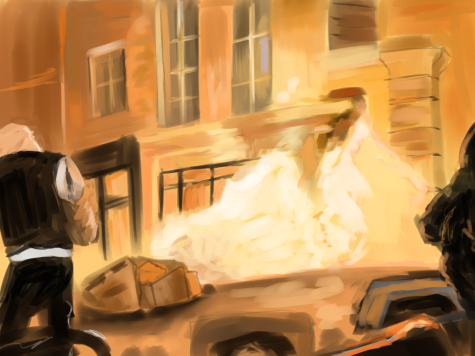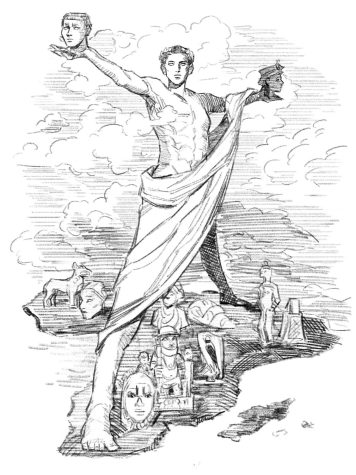The Recent Chaos in Bolivia
December 4, 2019
Evo Morales, who has been the president of Bolivia for over a decade, recently resigned due to upheaval in Bolivia over the apparent “undermining [of] democracy” that occurred to extend his reign [1]. This potential election fraud has led to a divide in Bolivia, between those who have stopped giving him their support due to his shady actions and those who still remain as his advocates.
Though Morales’ allies have abandoned him and most members of the state have turned against him, he was once widely respected and adored by the citizens of Bolivia. He was the first indigenous president to be elected, and brought economic prosperity and equality to Bolivia. They saw him as one of the first leaders who truly represented Bolivia, and worked towards the wellbeing and happiness of all citizens. However, after attempting to “amend Bolivia’s constitution” to allow for him to be elected president for a fourth term, many of his previous supporters quickly turned against him in the name of Bolivia [3].
This time of tumult in Bolivia has led to a major crisis for all citizens. The “violent protests” that have ensued due to “alleged fraud in [Morales’] re-election to a fourth term” have led to shortages of food and gas for all citizens, essentially shutting down daily life throughout Bolivia and greatly affecting the lives of all citizens [2]. Protesters, who still support Morales and his attempts at re-election, are stationed along many main supply routes, thus inhibiting basic supplies and necessities from reaching the citizens of Bolivia. Meat has become increasingly more scarce among Bolivian markets, and the prices for fruits and vegetables have skyrocketed. Despite the evident turmoil occurring for all Bolivians, many of those who run the market stands refuse to raise their prices, for they understand that there are many people even needier than themselves. This time of crisis, though detrimental to the state of Bolivia in many ways, has allowed for a strong bond to form between citizens, proving their resiliency through whatever may come their way.
There have already been fatalities due to the protests, and with the presence of police and soldiers, the environment in Bolivia is not likely to become any less hostile. Citizens wish solely for their lives to return to normal, and to once again be granted access to the basic needs that are now being held by protestors. Evo Morales’ resignation has led to chaos throughout Bolivia, creating unrest in a country that was once run with a sense of democracy and equality. There is an evident need for change in Bolivia, which will hopefully come with a new leader and a government system in which checks and balances allow fairness to prevail.
[1] https://www.nytimes.com/2019/11/10/world/americas/evo-morales-bolivia.html
[2] https://www.channelnewsasia.com/news/world/gas–food-running-short-in-bolivia-amid-protests–12102776
[3] https://www.npr.org/2019/10/14/767967304/how-bolivias-evo-morales-could-win-a-4th-term-as-president


